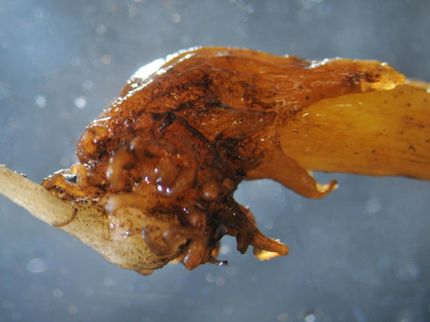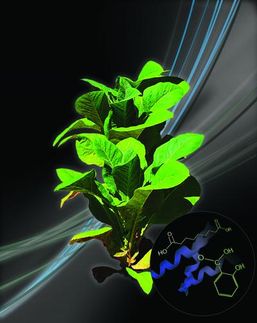Cornell researchers clone aluminum-tolerance gene in sorghum, promising boost to crop yields in developing world
Advertisement
When soils are too acidic, aluminum that is locked up in clay minerals dissolves into the soil as toxic ions, making it hard for most plants to grow. In fact, aluminum toxicity in acidic soils limits crop production in as much as half the world's arable land, mostly in developing countries in Africa, Asia and South America. Now, Cornell researchers have cloned a novel aluminum-tolerant gene in sorghum and expect to have new genetically-engineered aluminum-tolerant sorghum lines by next year.
The research provides insights into how specialized proteins in the root tips of some cultivars of sorghum and such related species as wheat and maize can boost aluminum tolerance in crops. Sorghum is an important food crop in Africa, Central America and South Asia and is the world's fifth most important cereal crop.
"My lab has been working to identify the physiological mechanisms of plant aluminum tolerance as well as its molecular basis," said Leon Kochian, a Cornell adjunct professor of plant biology and director of the U.S. Department of Agriculture-Agriculture Research Service (USDA-ARS) Plant, Soil and Nutrition Laboratory at Cornell. "The reason this is significant is there are extensive areas of the earth's lands that are highly acidic, with pH of 5 or below. Most of these areas are in the tropics or subtropics, where many developing countries are located."
Kochian's research shows that in aluminum-tolerant sorghum varieties, special proteins in the root tip release citric acid into the soil in response to aluminum exposure. Citric acid binds aluminum ions very effectively, preventing the toxic metal from entering the roots.
Kochian and colleagues, including Jurandir Magalhaes, who received his Ph.D. from Cornell in Kochian's lab and now directs his own lab at the Embrapa Maize and Sorghum Research Center in Brazil, used genetic mapping to identify a single gene that encodes a novel membrane-transporter protein responsible for the citric acid release. The gene, they discovered, is only turned on to express the protein and transport citric acid when aluminum ions are present in the surrounding soil.
The researchers have now used the sorghum gene to engineer transgenic aluminum-tolerant Arabidopsis thaliana (a small mustard plant used in plant research because of its small genome and short life cycle) and wheat plants. Sorghum is harder to genetically transform, Kochian said.
The map-based cloning of this agronomically important gene in sorghum is helping advance this species as a model for further exploring the mechanisms of aluminum tolerance and discovering new molecular genetic solutions to improving crop yields, Kochian said.
"This research also has environmental implications for badly needed increases in food production on marginal soils in developing countries," said Kochian. "For example, if we can increase food production on existing lands, it could limit encroachment into other areas for agriculture."
Original publication: Nature Genetics 2007.




























































